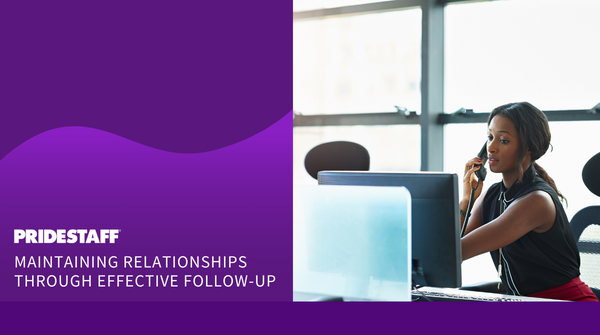Maintaining Relationships Through Effective Follow-Up

Losing clients to competitors? Getting bad reviews? Phone not ringing?
It may be time to take a look at your organization’s approach to client relationships—and how you can improve.
Effective follow-up is one of the most profound ways to nurture client relationships. By prioritizing consistent communication, you can address client needs more efficiently and cultivate long-term loyalty.
The Importance of Effective Follow-Up
Follow-up is not merely a post-sales formality but a cornerstone of client relationship management. It signifies to clients that their business is valued and their satisfaction is paramount. Effective follow-up strategies ensure that clients feel heard, understood, and appreciated, laying the foundation for a relationship built on trust and mutual respect.
Strategies for Effective Client Follow-Up
- Personalize Your Communication. Tailoring your follow-up messages to reflect the specific interests and needs of each client demonstrates a genuine commitment to providing personalized service.
- Utilize a Variety of Communication Channels. While email is a popular follow-up tool, diversifying communication channels can enhance engagement. Social media, phone calls, and handwritten notes can add a personal touch to your follow-up efforts.
- Provide Value in Every Interaction. Each follow-up should offer something of value to your client, such as helpful insights, industry updates, or exclusive offers.
- Prompt and Regular Follow-Up. Timeliness is key in follow-up. Prompt responses to client inquiries or concerns illustrate your dedication to their satisfaction. Regular check-ins, even when there’s no immediate business to discuss, keep the lines of communication open.
- Feedback is Golden. Inviting clients to share their feedback provides invaluable insights for improving your services or products and makes clients feel involved and valued.
- Celebrate Milestones Together. Recognizing and celebrating significant milestones in your clients’ business or personal lives can deeply enhance the emotional connection.
Don’t Just Follow-Up. Follow Through.
Understanding and anticipating client needs is fundamental in crafting an effective follow-up strategy. It involves active listening, asking the right questions, and analyzing client feedback.
- Act on Feedback. Demonstrating that you have acted on clients’ feedback can significantly boost their trust and loyalty.
- Solve Problems Proactively. Don’t wait for clients to report issues. Being proactive in identifying and resolving potential problems underscores your commitment to their success.
Nurture Long-Term Client Loyalty
Long-term loyalty doesn’t happen by accident. It is cultivated through consistent, meaningful, and strategic follow-up.
- Consistent Quality Interaction. Maintaining consistent quality in your interactions, products, and services is essential for long-term loyalty.
- Recognize and Reward Loyalty. Implementing loyalty programs or offering exclusive perks can enhance client retention.
- Stay Relevant. Keeping your business practices and offerings in line with evolving market trends and client expectations ensures ongoing relevance–and business.
Ready to Elevate Your Hiring Strategy?
At PrideStaff, we understand that maintaining strong client relationships is integral to business success. Our expert recruiters will stay in touch and keep you updated during every step of the recruitment process. Contact your local PrideStaff office to get started today!
Related Posts
Audit Your Customer Experience to Increase Profitability
How to Teach Young Team Members the Importance of Communication



